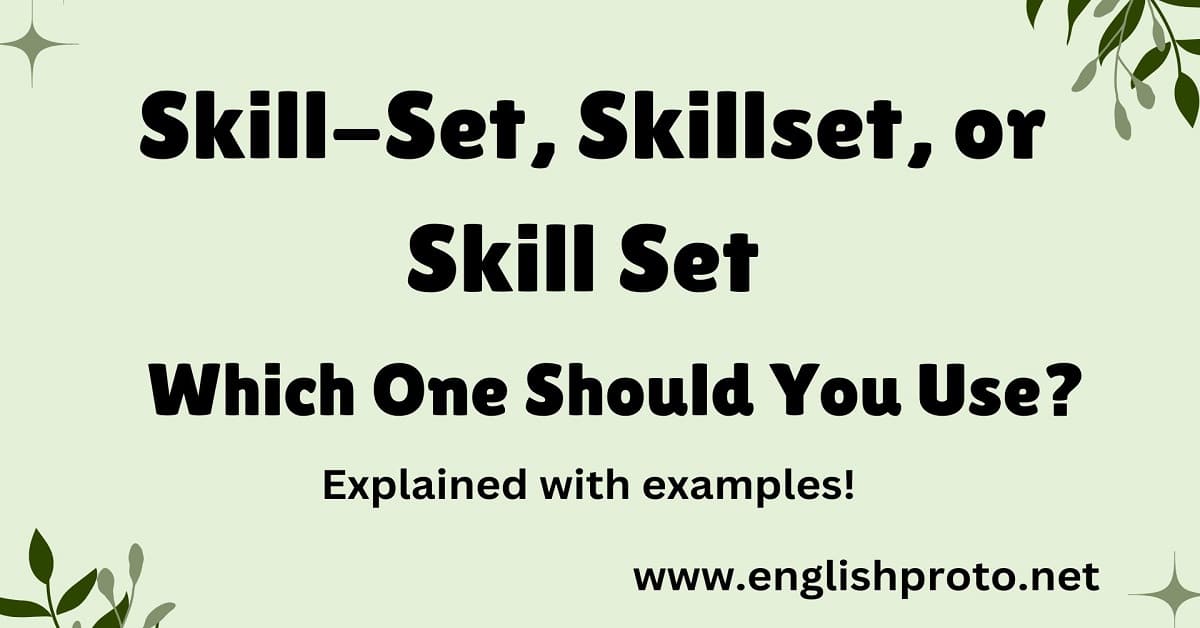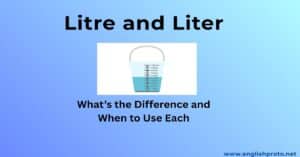Skill-Set, Skillset, or Skill Set: Which is Right? Have you ever wondered which form, skill-set, skillset, or skill set, is the right choice for your writing? Whether you’re drafting a professional email, updating your resume, or creating content for a blog, choosing the correct term can make all the difference.
Misusing these terms can confuse readers and compromise the clarity of your message. Don’t worry, though, by the end of this article, you’ll have a clear understanding of when and how to use each form. Let’s dive in and uncover the best way to present your skills with confidence!
Why Understanding Skill-Set, Skillset, and Skill Set Matters
Language is a dynamic tool that evolves over time. However, with its evolution comes an increased likelihood of inconsistencies and misuse. In professional writing, such as resumes, cover letters, reports, academic work, and even everyday communication, getting the right phrase is essential.
Misusing or misunderstanding terms like skill-set, skillset, and skill set can lead to confusion and reduce the professionalism of your writing. This is why understanding their correct usage is crucial for both professionals and enthusiasts alike.
Quick Summary
- Skill-set: A compound noun/adjective used formally to describe a combination of skills.
- Skillset: A more casual or informal version of the term, often used in modern contexts.
- Skill set: A versatile term used to refer to a collection or group of skills.
Reasons for Confusion
There are several reasons why people often confuse skill-set, skillset, and skill set:
- Pronunciation: These terms sound relatively similar, with slight variations.
- Evolving Language: As language adapts, informal terms like skillset have gained popularity, while more formal versions like skill-set are still widely used in professional contexts.
- Contextual Ambiguity: In some settings, people may interchange these terms without realizing the subtle differences.
- Regional Influences: Certain industries or regions may have preferred usages, making it harder to standardize across all forms of communication.
Detailed Explanation
1. Skill-Set
Skill-set is often used as a compound noun or adjective in formal writing to describe a combination or collection of skills. The hyphenation creates a distinct visual and grammatical identity for the term, emphasizing the unified nature of skills as a whole.
- Usage: Primarily used in professional, academic, and formal settings where clarity and precision are key.
- Example: Her skill-set in data analysis, project management, and team leadership significantly enhanced the company’s productivity.
Skill-set is ideal when referring to a comprehensive package or combination of abilities in a formal tone.
2. Skillset
Skillset is a more casual, modern version that strips away the hyphen for smoother readability in informal contexts. It’s often used in blogs, casual emails, and social media posts where the formality of writing isn’t as critical.
- Usage: Common in business communication, self-help articles, digital media, and social media platforms.
- Example: He showcased his impressive skillset in social media management, content creation, and search engine optimization.
Skillset focuses on the collection or grouping of skills without emphasizing the formal, rigid structure associated with the hyphenated form.
3. Skill Set
Skill set is the least formal of the three forms, functioning as a straightforward noun phrase used to describe the skills someone possesses. It can easily be integrated into everyday conversations and casual writing.
- Usage: Best suited for general or informal usage where an unambiguous understanding of a group of skills is needed.
- Example: The team’s skill set in graphic design, UX/UI design, and web development helped launch the new product smoothly.
Skill set is adaptable and can be used interchangeably with skillset in most scenarios, with slightly less formal connotations.
Common Errors
Despite the relative simplicity of these terms, several common errors frequently arise:
- Using “skillset” in formal contexts: Many mistakenly use skillset where skill-set is more appropriate, especially in professional settings like resumes or academic papers.
- Omitting the hyphen in compound forms: The omission of the hyphen in skill-set creates a misrepresentation of a combined set of skills, which should be avoided in formal usage.
- Overusing one form: Some individuals prefer to use only one form (e.g., always using skillset) without considering context-specific nuances.
Synonyms or Alternatives
When seeking alternatives to skill-set, skillset, or skill set, consider the following:
- Competencies
- Capabilities
- Abilities
- Expertise
These words provide similar meanings in different contexts, though they may not fully encompass the structured and combined nature implied by skill-set or skillset.
Examples in Sentences
- Skill-set: Her skill-set as a project manager integrates communication, problem-solving, and team coordination seamlessly.
- Skillset: His skillset in video editing and production has contributed to the success of multiple marketing campaigns.
- Skill set: The athlete’s skill set in agility, endurance, and strength gave him a competitive edge.
Origins and History
The terms skill-set, skillset, and skill set have evolved over time, reflecting changes in language and communication needs. Historically, compound forms like skill-set originated from more formal usage, often seen in educational and professional settings.
Over time, informal styles introduced simpler forms, including skillset, which is now widely used in casual, digital communications.
Conclusion: Skill-Set, Skillset, or Skill Set
The distinction between skill-set, skillset, and skill set may seem minor, but it significantly impacts the clarity and professionalism of writing.
Whether you’re preparing a formal report, updating your resume, or drafting a casual post on social media, choosing the correct form based on context is essential.
By understanding and applying these distinctions, you’ll ensure your communication is clear, polished, and effective.



